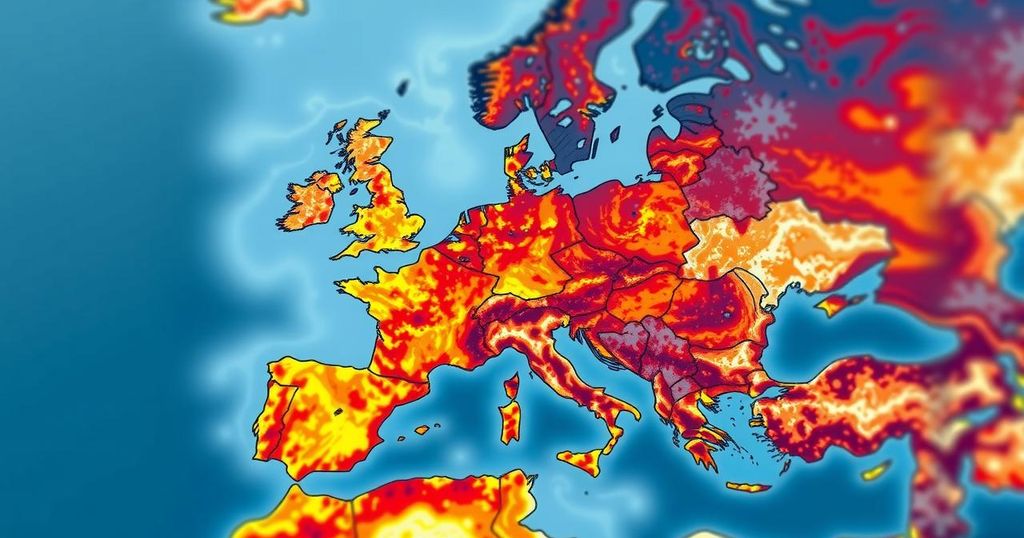Record Heat Expected in 2023, Warns EU Climate Scientists

The EU’s Copernicus Climate Change Service reports that 2023 is on track to be the hottest year recorded, primarily due to climate change from fossil fuel emissions. This finding precedes the UN COP29 summit, highlighting the urgent need for nations to take significant action to combat rising global temperatures, which have now surpassed 1.5°C above pre-industrial levels, resulting in increasing extreme weather incidents worldwide.
According to the European Union’s Copernicus Climate Change Service (C3S), 2023 is projected to be the warmest year on record, surpassing 2022 unless a remarkable drop in temperatures occurs in the remaining months. This announcement was made ahead of the upcoming UN COP29 climate summit in Azerbaijan where increased funding to address climate change will be discussed. C3S attributes the rise in global temperatures, now over 1.5°C higher than in the late 19th century, primarily to climate change driven by fossil fuel emissions. The urgency for decisive government action was emphasized by scientists, who noted that current climate agreements are at risk of failing, potentially leading to severe global consequences, as evidenced by recent natural disasters linked to temperature increases.
The context of this report lies in the ongoing global discourse on climate change, particularly as nations prepare for international negotiations focused on climate action. The increase in average global temperatures is a critical aspect of climate change, underscoring the need for effective international collaboration to mitigate its impacts. C3S has been monitoring climate metrics and alerting the global community to alarming trends that demand urgent action from governments worldwide, especially in light of commitments made during previous climate accords such as the 2015 Paris Agreement.
In conclusion, the evidence presented by C3S indicates a troubling trajectory for global temperatures, confirming that 2023 could set a new record. The implications of this warming trend necessitate immediate and coordinated international efforts to reduce carbon emissions and adhere to climate agreements to avert the dire consequences of climate change. Without significant action, the foundational targets of climate agreements may be out of reach, with catastrophic weather events likely to intensify.
Original Source: www.taipeitimes.com






